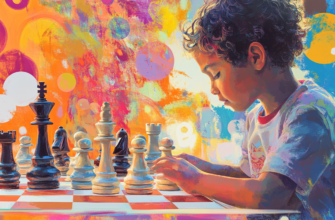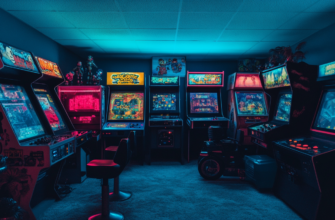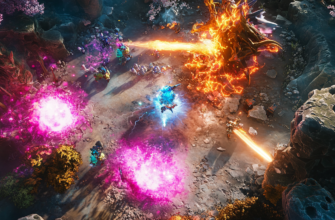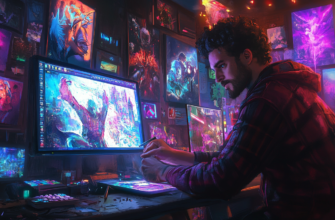- How social games empower self-esteem and spark personal growth
- Understanding the connection between social games and self-esteem
- Here’s how social games improve self-esteem and promote personal growth:
- Step-by-step guide: How to maximize self-esteem and personal growth through gaming
- Best practical tips to enhance your social gaming experience
- Tip 1: Play games that challenge you in new ways
- Tip 2: Join communities or gaming clans
- Tip 3: Turn defeats into learning lessons
- Tip 4: Switch to difficult modes or high-stakes matches
- Moving from games to real-life confidence boosters
- Conclusion: Level up your self-esteem through social games
How social games empower self-esteem and spark personal growth
Hey there, fellow gamers! Have you ever noticed how gaming—especially social games—can do more than just provide hours of entertainment? If you play multiplayer games with friends or strangers online, you may be unknowingly building invaluable life skills. Whether it’s boosting your self-confidence, learning teamwork, or even pushing yourself to grow personally, there’s a lot more to social games than just strategy and high scores.
Today, we’re diving into the world of social gaming and how it positively impacts self-esteem and personal growth. Maybe you’re here because you’re already hooked on social games like *Among Us*, *Fortnite*, or *League of Legends*, or you’re just getting started and want to understand how these games can actually help you develop in real life. Either way, you’re in the right place. By the end of this guide, you’ll see how some solid social game recommendations can actually transform how you perceive yourself and the world around you.
Understanding the connection between social games and self-esteem
First off, let’s break down some key concepts. Self-esteem is a measure of your self-worth, i.e., how much you value yourself and how confident you feel about your abilities. Personal growth, on the other hand, refers to your ongoing process of developing your skills, attitudes, and knowledge in a way that makes you a better person.
Social games uniquely combine competitive environments with cooperation, communication, and problem-solving, which presents multiple opportunities for personal improvement. Whether you’re achieving objectives in-game, teaming up with players across the globe, or taking on a leadership role, these experiences often mirror real-world situations. As a result, they can help develop confidence and new skills that translate into your offline life.
Here’s how social games improve self-esteem and promote personal growth:
- Boosting communication skills—talking, listening, and strategizing with teammates.
- Building confidence in your abilities through complex in-game achievements.
- Learning to manage and resolve conflicts in a virtual setting.
- Offering leadership opportunities that encourage personal and social responsibility.
- Pushing you outside of your comfort zone, helping you adapt to stress and change.
Step-by-step guide: How to maximize self-esteem and personal growth through gaming
So, how do you game in a way that boosts your self-worth and contributes to personal development? Here’s a practical, step-by-step breakdown of how to get the most out of your social gaming experience:
- Choose the right social games for growth.
- Set achievable in-game goals.
- Engage actively with teammates.
- Recognize and celebrate your progress, big or small.
- Learn to take breaks and reset.
- Accept constructive feedback.
Not all social games are created equal when it comes to boosting self-esteem and personal growth. You’ll want to pick games that encourage teamwork, communication, and even strategic thinking. Games like *Rocket League*, *Overwatch*, and *Valorant* are fantastic choices because they rely on player cooperation and role responsibility.
Start by setting small, manageable goals. Whether it’s mastering a certain role, achieving a rank-up, or earning specific accolades in-game, meeting these objectives can serve as confidence boosters. Every time you succeed, you’re building your sense of self-worth.
While it’s tempting to stay silent on voice chat, talking to your team can significantly enhance communication skills. Learning to work together rather than fighting solo is a great way to build trust and camaraderie. Plus, offering help in-game builds leadership qualities and collaborative confidence.
A lot of the time, we overlook small victories when we’re too focused on long-term goals. Celebrate those in-game achievements like clutching a 1v5 situation in *CS:GO* or reviving your teammates in time for an epic comeback in *Apex Legends*. Acknowledge your progress to stay motivated and reinforce positive self-esteem.
We’ve all been there—logging hours on end in intense matches, pushing through that ranked grind. But it’s crucial to avoid burnout. Taking breaks gives you time to reflect on your in-game performance and refresh your mind. Come back to the game with a clearer perspective. This also helps in stress management, a valuable life skill.
One of the best ways to improve is by embracing feedback. Whether it’s from friends or even strangers, learning to take advice can help you grow both as a player and a person. No need to beat yourself up over mistakes; instead, see them as growth opportunities.
Best practical tips to enhance your social gaming experience
Now that we’ve got the basics down, let me share some high-level tips that can change how you experience social gaming. Whether you’re a casual gamer or a competitive player, incorporating these strategies will not only make gaming more fun but also help build a healthier self-image.
Tip 1: Play games that challenge you in new ways
If you’ve been playing the same game for years, it might be time to mix it up. Trying new games like puzzle-solving co-op titles (*Portal 2*) or survival games (*Don’t Starve Together*) could push you into areas outside your comfort zone, and that’s where growth happens. By learning new strategies or roles, you challenge yourself to adapt, which builds resilience.
Tip 2: Join communities or gaming clans
One of my favorite things about social gaming is the thriving communities that exist around certain games. Whether it’s Discord servers, Reddit threads, or in-game clans, joining these spaces can offer a sense of belonging and support. You’ll meet like-minded people who share tips, strategies, or simply enjoy playing together. It creates a positive environment where you continue to grow socially while also improving in-game.
Tip 3: Turn defeats into learning lessons
It might sound obvious, but losing can actually be one of the best ways to improve. Instead of getting caught in a negative spiral, use losses as learning lessons. Review why you lost: Did the enemy team have better communication? Were your strategies flawed? Learning to analyze your failures not only improves your gameplay but also builds resilience in handling real-world setbacks.
Tip 4: Switch to difficult modes or high-stakes matches
It’s easy to get comfortable in casual modes, but every now and then, throw yourself into the deep end with high-stakes environments like ranked matches. These games demand more focus, stress management, and communication, which creates ample opportunities for developing leadership skills and confidence under pressure. The adrenaline rush might challenge you initially, but the lessons you gain by facing adversity are worth it.
Moving from games to real-life confidence boosters
Okay, so we’ve gone over how to get better at gaming in a way that really lifts your self-esteem. But here’s the cool part—you can take what you’ve learned in games and apply it to your offline life.
- Did you excel as a squad leader in a tactical game? Use that same communication and leadership style for group projects at school or work.
- Remember how you were calm under pressure in a last-minute match-saving play? Apply that same composure during stressful life events or decision-making moments.
- Did leveling up give you a surge of confidence? Workout routines or personal development projects will bring similar feelings of accomplishment.
Conclusion: Level up your self-esteem through social games
At the end of the day, gaming isn’t just about getting those sweet wins—although that’s definitely part of it. By embracing social games for more than what they are on the surface, you can develop key life skills like communication, perseverance, and confidence. The opportunities for growth in these digital worlds are endless, and the lessons learned often stick with you well beyond the screen. So next time you log onto *Valorant*, *Fortnite*, or *Rocket League*, just remember: you’re not just leveling up in the game, but personally as well.
Now it’s your turn—go out there and practice these tips. See how gaming can enhance your self-esteem and help you become the best version of yourself, both online and in real life.


















Really enjoyed this post—thank you for sharing such valuable content!
Want to master your hotel service skills? Whether you’re beginning your journey or an hospitality pro, understanding all hotel service procedures in handling common hotel situations effectively can make a huge difference and your success.
At https://www.hotelreceptionisttraining.com/search/label/Order, we offer detailed training designed to equip you with the skills you need to excel in the hospitality industry.
Our expert-led program covers:
✔️ All Hotel Service Procedures: From front desk operations and housekeeping coordination, we’ve got you covered.
✔️ Handling Real Hotel Situations: Learn how to manage challenging scenarios, including guest complaints, overbookings, in VIP requests.
✔️ Hotel Reservations: Develop the art of efficient booking management.
✔️ Hotel Check-in Procedures: Welcome guests with seamless arrivals and personalized service.
✔️ Hotel Conversations in English: Build confidence when speaking with international travelers.
✔️ Communication Skills for Hospitality: Deliver unforgettable guest experiences through clear, professional communication.
Our real-world training ensures you’re ready for day-to-day hotel scenarios, giving you the skills and confidence to thrive.
Discover how you can become a standout hotel receptionist or hospitality professional by visiting https://www.hotelreceptionisttraining.com/search/label/Order today!